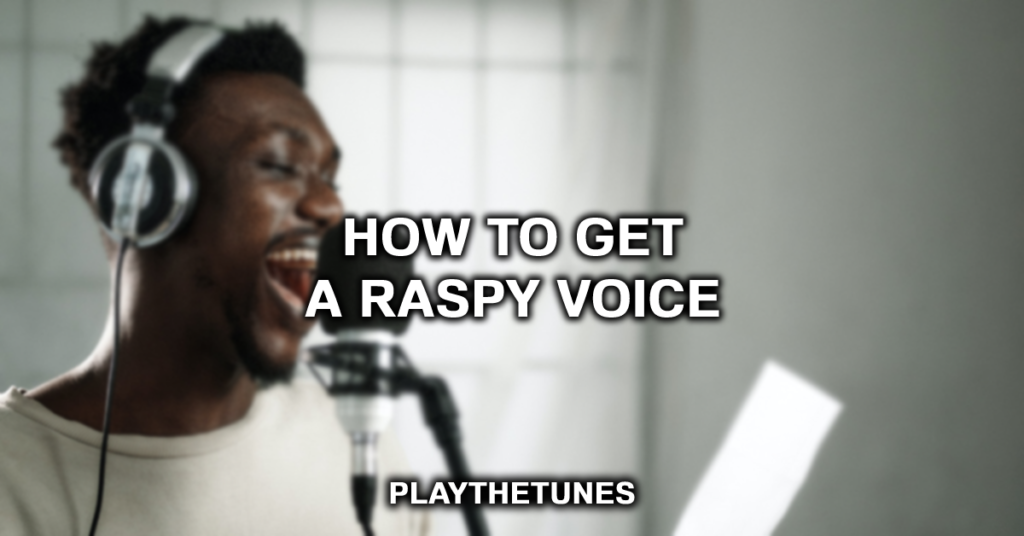
For individuals with Parkinson's disease, programs such as the Lee Silverman Voice Treatment program (LSVT) or Speak OUT! are designed to help improve vocal loudness and clarity of speech. Many different voice therapy exercises, such as Vocal Function Exercises (VFE), can help to modify pitch and volume. Good breath support is essential for maintaining good vocal quality. Voice therapy can also help to increase your stamina and endurance, allowing you to speak or sing for extended periods without developing hoarseness.Ī voice therapist can teach you specific exercises to help improve breath support. The voice therapy techniques that you practice can help improve your vocal loudness and reduce the risk of developing muscle tension dysphonia. Vocal therapy can also facilitate good vocal health by teaching you to speak and sing more efficiently, reducing the risk of hoarseness.ĭuring voice therapy, you will learn to reduce tension in the muscles of the voice box.
#Fix raspy voice how to
Voice therapy can help to reduce swelling and inflammation of the vocal cords or voice box by showing you how to eliminate or prevent harmful behaviors.

The goals of voice therapy may be the same for both adults and children. Bacterial infections, such as laryngitis, can also cause the vocal cords to become inflamed and lead to hoarseness. Viral infections, such as a common cold, can be a cause of hoarseness. Speaking or singing for long periods can strain the vocal cords and lead to hoarseness. Acid refluxĪcid reflux occurs when acid in the stomach rises into the esophagus, causing irritation and swelling of the vocal cords. AllergiesĪllergies and post-nasal drip can cause inflammation of the vocal cords, which can lead to hoarseness. The chemicals in cigarettes and other tobacco products can irritate and damage the vocal cords. Smoking and exposure to secondhand smoke can be a significant contributor to hoarseness or other voice disorders. There are several possible causes of hoarseness and other voice disorders. Voice disorders can affect adults, teens, and children. An injury or irritation is typically the cause of hoarseness. The changes can range from mild to severe, affecting your ability to be understood. It may also make your voice sound softer in volume or lower in pitch. Hoarseness may be characterized by a breathy, raspy, or strained sound.

A hoarse voice is a change in the quality of your voice.


 0 kommentar(er)
0 kommentar(er)
